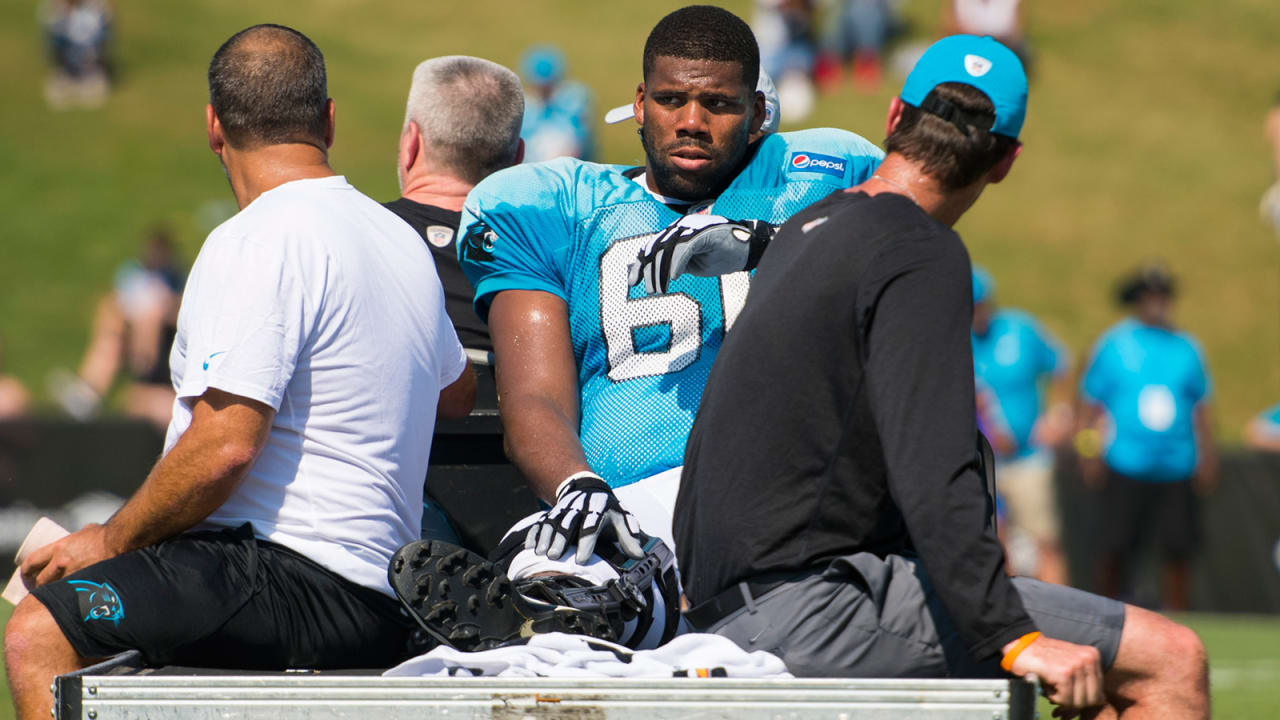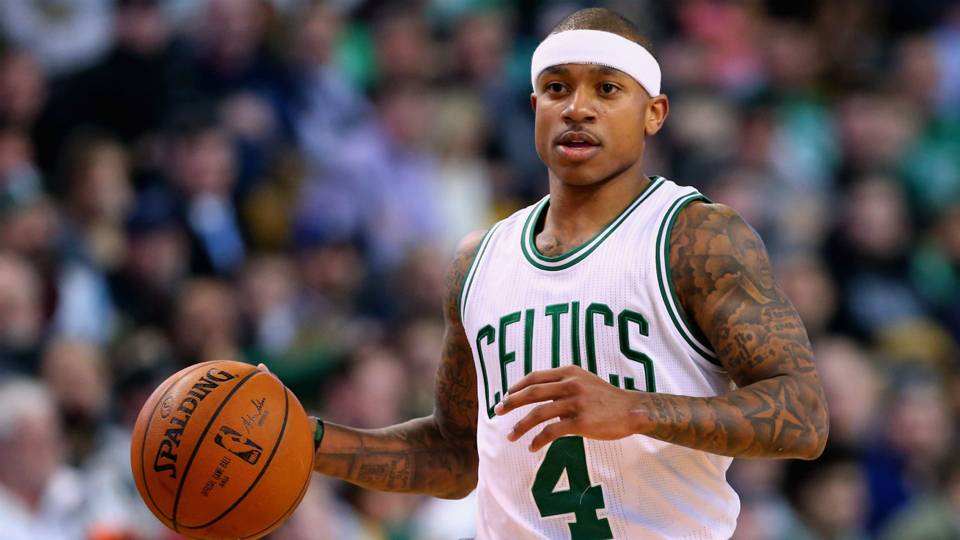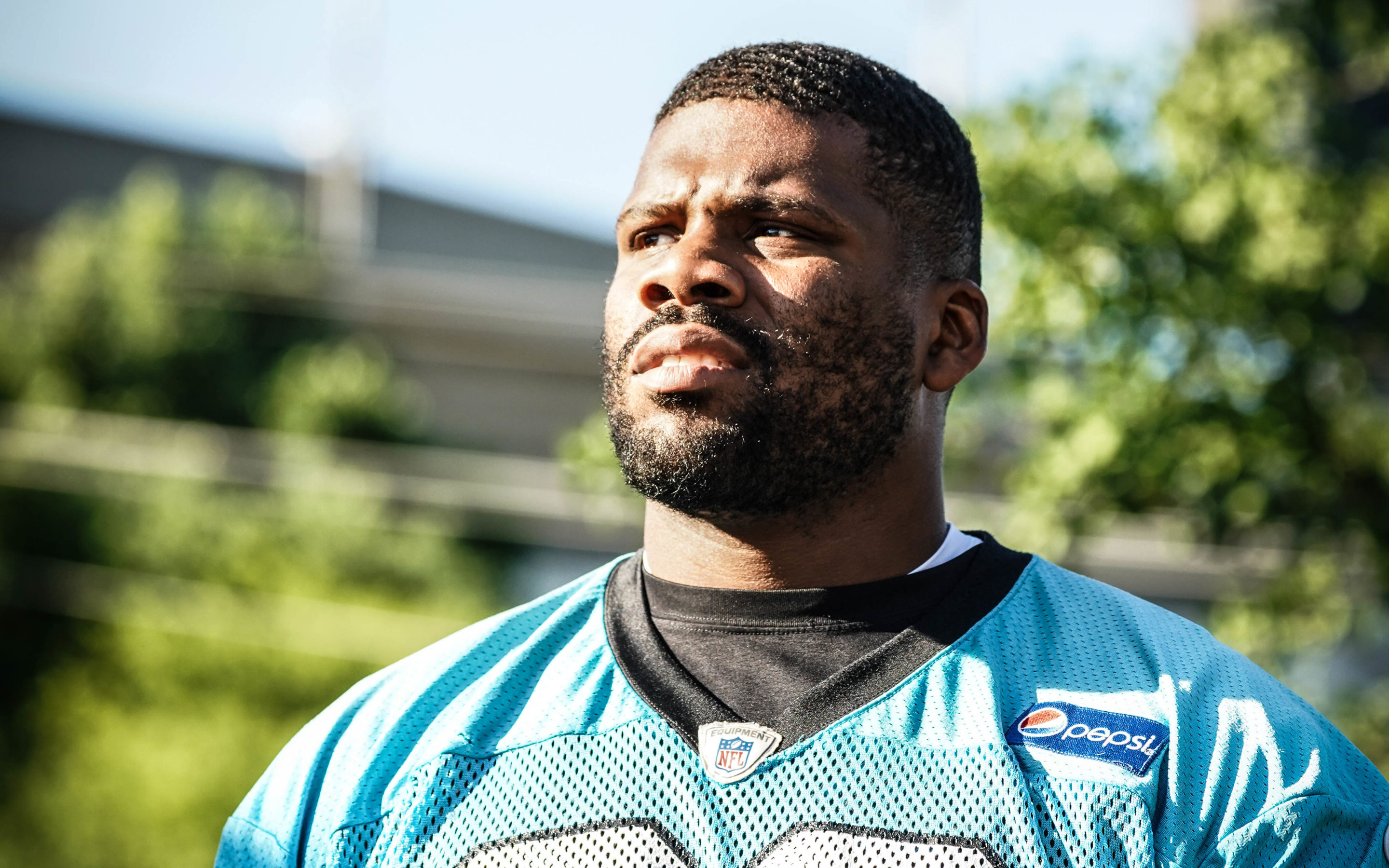As Daryl Williams and the rest of the Panthers reported to camp, the personal objectives were obvious for the 25-year old right tackle: build off second-team All-Pro honors of a year ago and parlay his play anchoring the right side of the Panthers’ offensive line into a life-changing new contract for he and his family, complete with a signing bonus that would dwarf the entirety of his fourth-round rookie contract.
But before Williams could even settle into his Wofford dorm room, life got a lot more complicated when a routine drill ended with Williams screaming on the turf with a dislocated patella and torn MCL.
There have already been reports that Williams will forego season-ending surgery in favor of rest and rehab which may allow him to play, perhaps as soon as “6+ weeks” as NFL Network’s Ian Rapoport stated it. In the NFL, being available to play on a weekly basis matters, particularly when you’re looking for a roster spot or a new contract. Unfortunately for Williams, this isn’t the first time he’s been carted off for the Panthers. In his first career game – Jacksonville 2015, the “Josh Norman waving bye bye to Bortles and dismounting his horse in the end zone” game – Williams went down after a field goal attempt with what turned out to be more of a scare at the time, suffering a sprained MCL. In 2016, he missed three games down the stretch with an ankle injury, but the team was also not in the playoff hunt; since becoming the full-time starter, Williams has started 26 of 32 games, but he’s also had leg injuries in three of his four seasons.

Photo Credit: Panthers.com
Last season, Arizona Cardinal left tackle DJ Humphries suffered a similar knee injury before electing to have surgery and miss the last eleven weeks of the year. Humphries, however, was a first round pick, and the Cardinals picked up his fifth-year option; post-surgery, Humphries will receive nearly $10 million that’s guaranteed for injury, allowing him to return to the field fully healthy this season during his ‘prove it’ year, but that’s a luxury Williams and the Panthers don’t have.
So now Williams faces a choice: opt for surgery and sit out the 2018 season, but run the risk of not liking the offers of teams that would come following, further delaying a potential payday and likely forcing another ‘prove it’ year in his future or rehab this knee injury and come back halfway through the season to a job that may already be lost to the Panthers’ 2017 second-round pick Taylor Moton; or worse, come back halfway through the season and play through pain at a lower level than the second-team All-Pro performance Williams put on in 2017, reducing his chances at a Norwell-sized payday.
Never does sports feel like more of a business than when it comes to injuries.
Playing through pain or returning from an injury that may require eventual surgery comes with its own risks and complications. The clearest recent example of this comes from the NBA, when Boston’s Isaiah Thomas injured his hip during the 2016-17 regular season but continued to play after missing only two games; Thomas invigorated Celtics home games in a way only a select few have and the former last pick of the draft was looking at a $100 million dollar deal when he hit free agency. Unfortunately, during the playoffs, he reinjured his hip and wasn’t the same; he tried to continue to play with diminishing returns and was ultimately inactive for the last three games of the season. Thomas would finish fifth in MVP voting in June, before being traded in August – six months later he was traded again. Two weeks ago, Thomas signed a one-year, $2 million contract with a new team – just two years after he let the world know that he expected the Celtics to ‘bring out the Brinks Truck’ for him.

Isaiah Thomas. Photo Credit: Getty Images
When Daryl Williams and his wife went on a pre-training camp vacation to the Dominican Republic, this wasn’t what they envisioned; this season was supposed to be a culmination of sorts, hard work rewarded. Instead, they’re greeted with more uncertainty.
While fans and commentators weigh in on the best courses of action, keep in mind, these are not just football decisions, but life decisions. While it may be hard for some to sympathize with a ‘millionaire athlete’, many can relate to being on a track in life only to have it suddenly disrupted. People will want Daryl Williams to do what’s right for his family, but what does that actually mean? It’s easy to give the advice, but it’s much harder to navigate the daily and weekly decisions that will shape his family’s financial future for the rest of their lives.
Pro athlete or not, it doesn’t get much more real than that.

